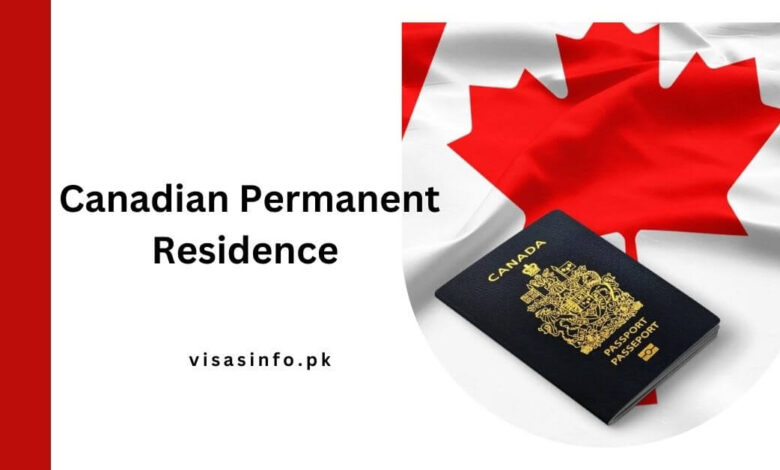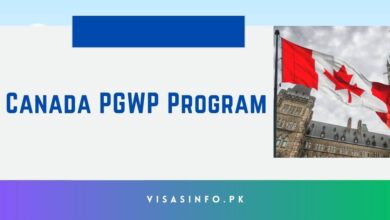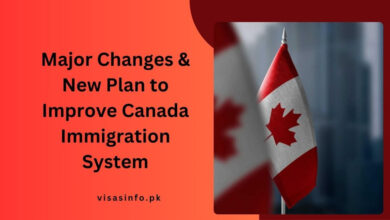Canadian Permanent Residence 2024 – Latest Update

If you have been daydreaming about establishing a new existence in Canada with your family but are uncertain about where to begin or are feeling overwhelmed by the immigration process, this article is for you. I will guide you through the process in detail. The opportunities that immigrants in the provinces of Nova Scotia, Alberta, and Ontario have available to them will be the subject of this comprehensive article.
Additionally, we will address the occupations that are in high demand and have the potential to expedite your relocation to Canada with your family. Even without a degree from an accredited university, there is no problem. The majority of these programs are accessible to individuals who do not hold a degree.
The immigration environment in Canada has undergone several significant improvements in recent years, which have facilitated the attainment of permanent residency for highly educated individuals and the fulfillment of their aspirations. The implementation of category-based lotteries for Express Entry is a significant development that has occurred. The new method prioritizes the candidate’s professional experience over their score in the Comprehensive Ranking System (CRS).
New options have become available to individuals who may not have previously met the requirements as a result of the modification to the immigration selection process. Conversely, it poses an unresolved inquiry for individuals employed in occupations that are not prioritized by these Express Entry draws: What are the various options available to them for further exploration?
The answer to this specific inquiry can be found in the Provincial Nominee Program (PNP). Express Entry may have been the preferred route for economic immigration in the past, but the Provincial Nominee Program (PNP) has emerged as the most popular option in Canada in recent years. The targeted draws approach has been the traditional method of administering PNPs, which are administered by nearly all provinces except Nunavut and Quebec. This approach involves nominating individuals who are capable of meeting the unique demographic and economic requirements of each province. The majority of PNPs maintain an up-to-date inventory of high-demand professions that are critical to the development of their respective regions.
It is essential to be aware that each province has its own set of qualifying criteria, in addition to the requirement that you have full-time work experience in a profession that is either designated or in demand, if you are considering applying for the PNP. We have compiled a list of in-demand professions by province, along with relevant resources, to help you investigate the diverse options at your disposal.
The options that are currently available in the provinces of Ontario, Nova Scotia, and Alberta will be the subject of this blog post.
Check Also: Major Changes & New Plan to Improve Canada Immigration System
Alberta
The Provincial Nominee Program (AAIP) in Alberta does not have an official list of occupations that are targeted. However, the province does publish a list of jobs that are presently in high demand. Positions such as supervisors of retail sales, registered nurses, drivers of transport vehicles, managers of retail and wholesale commerce, accounting clerks, and similar roles are included in this list. Additionally, Alberta maintains a list of occupations that are ineligible for the Provincial Nominee Program (PNP). This implies that individuals employed in specific positions are ineligible for immigration. In addition, the province conducts targeted drawings for workers in the healthcare and agriculture sectors through the Dedicated Healthcare and Priority Sectors and Farm streams, respectively. For the sake of clarification, these streams are referred to as “streams.”
Nova Scotia
The Nova Scotia Nominee Program (NSNP), also known as the Provincial Nominee Program (PNP) of Nova Scotia, offers a concise list of occupations that are primarily designed for candidates who have attained TEER levels 3, 4, and 5 in terms of their training, education, experience, and level of responsibility. The province of Nova Scotia is currently seeking candidates for a diverse array of positions, such as those for building trades assistants, nurse’s aides, servers of food and beverages, light-duty cleaners, truck drivers, heavy equipment operators, and transport truck drivers.
Ontario
Employer Job Offer is a stream within the Ontario Provincial Nominee Program (OINP) that welcomes individuals who possess a job offer from an employer and possess the necessary skills for a position that is in high demand. This stream necessitates possessing a position that is in high demand and receiving a job offer from an employer. Two categories of employment are deemed to be in high demand: those that are available throughout Ontario and those that are located outside of the Greater Toronto Area (GTA). In the province of Ontario, occupations that are in high demand include laborers, butchers and fishmongers, and construction trades assistants.
conclusion
In summary, the Provincial Nominee Program (PNP) offers a potential pathway to permanent residence in Canada for individuals employed in occupations that are not explicitly targeted by category-based Express Entry draws. This is because the PNP permits provinces to nominate candidates for permanent residence. People who earn their livelihoods in sectors such as agriculture, forestry, and fisheries are affected by this.
You must conduct thorough research on the specific qualifications and requirements of the PNP you are interested in applying for, as each province maintains its list of high-demand positions. This will guarantee that you complete all of the essential prerequisites. You will be significantly closer to attaining your objective of establishing a permanent residence and securing employment in Canada if you utilize an alternative immigration route.
Benefits of Canadian Permanent Residence
- Rights to Live and Work in Canada: As a permanent resident, you are entitled to reside and work in any province or territory of Canada. You are not subject to any limitations when relocating across the country, from the lively metropolis of Toronto and Vancouver to the more tranquil and picturesque regions of Nova Scotia or Alberta.
- Social Benefits Accessibility: Canadian permanent residents are entitled to the majority of the social benefits that Canadian citizens enjoy, including access to high-quality healthcare through the public healthcare system and social security programs such as the Canada Pension Plan (CPP) and Employment Insurance (EI).
- Canadian Citizenship Pathway: Upon maintaining permanent resident status for a specified number of years (usually three out of five), PR holders are eligible to file for Canadian citizenship. Upon becoming a citizen, you are granted supplementary rights, including the capacity to vote, run for political office, and possess a Canadian passport.
- Education Opportunities: Canada’s world-class public education system is accessible to permanent residents at all levels. As domestic students, children of permanent residents are eligible to attend public schools, while adults are eligible to enroll in Canadian universities and colleges at reduced tuition rates in comparison to international students.
- Freedom to Travel Within and Outside of Canada: Canadian permanent residence grants you the ability to travel within and outside of Canada without the need for a separate visa. Furthermore, Canadian residents are eligible for visa-free travel to numerous countries. This is particularly advantageous for travel to numerous Caribbean and South American countries, as well as countries within the European Union.
- Work Opportunities Across Sectors: Permanent residents are permitted to work for nearly any employer in Canada, while foreign workers on temporary visas may be restricted to specific employers or job categories. This adaptability enables PR holders to investigate a variety of employment opportunities in a wide range of sectors, including manufacturing, healthcare, and technology.
- Permanent inhabitants are entitled to the full protection of Canadian law and the Canadian Charter of Rights and Freedoms. This guarantees that you are treated equitably and equally in all facets of life, such as accommodation, employment, and access to public services.
- Eligibility for Public Pension Plans: Permanent residents may qualify for public pension benefits, including the Old Age Security (OAS) pension and the Guaranteed Income Supplement (GIS), upon satisfying specific residency requirements. This provision guarantees financial stability during retirement.
- Sponsorship of Family Members: Permanent residents are entitled to sponsor eligible family members (spouses, dependent children, parents, and grandparents) for Canadian permanent residence. This practice facilitates the reunion of families and allows them to establish a life together in Canada.
- Establishing a Business: Permanent residents are permitted to establish and invest in their enterprises. They are permitted to acquire an existing business, establish a new one, or invest in a franchise. This presents a plethora of entrepreneurial opportunities in the robust economy of Canada.
- Access to a High Standard of Living: Canada is consistently ranked as one of the world’s finest countries for quality of life. Canada’s stable political environment, world-class education, excellent healthcare, low crime rates, and clean, secure environment are all advantages that permanent residents enjoy.
- Eligibility for Canadian Mortgages: Permanent residents are eligible to apply for mortgage financing to purchase property in Canada. Numerous financial institutions provide competitive mortgage rates, which facilitate the acquisition of residences and the accumulation of wealth through real estate for PR holders.
- Multicultural Society and Inclusion: Canada is renowned for its diversity and multiculturalism. Canadian society is a place where individuals from diverse cultural, ethnic, and religious backgrounds are respected and embraced, and permanent inhabitants can fully engage in it. It is an ideal setting for the development of inclusive communities and the nurturing of families.
- No Requirement for Visa Extensions: Permanent residence does not necessitate the perpetual renewal of visas or permits, unlike transient work or study permits. PR status is conferred indefinitely, with the sole prerequisite that you reside in Canada for a minimum of two years every five years to preserve your status.
- Canadian Student Loan Eligibility: As a permanent resident, you are eligible to apply for government student loans and grants, which can alleviate the financial burden of higher education. This is a substantial advantage for individuals who are interested in pursuing additional education in Canada.
- Cultural and Outdoor Recreation Opportunities: Canada provides a plethora of recreational activities, such as access to breathtaking natural parks, skiing resorts, hiking trails, and cultural festivals. You have the opportunity to immerse yourself in the rich cultural heritage of Canada and explore its breathtaking landscapes as a permanent resident.
Frequently Asked Questions:
-
How do you become a permanent resident of Canada?
You must first apply to the province or territory where you want to live and be nominated, and After a province or territory nominates you, you must apply to IRCC for permanent residence. An IRCC officer will then assess your application based on Canadian immigration rules.
-
Is it easy to get PR in Canada?
Canada permanent residency can be easy if you target a particular state relevant to job opportunities that suit your career. While going through your application, you will have the upper hand to crack through the approval and receive an invite.
-
What is the fastest way to get permanent residency in Canada?
Express Entry is Canada’s fastest and most popular immigration program. Candidatos that apply through the Express Entry system can receive permanent residence status as soon as six months.



